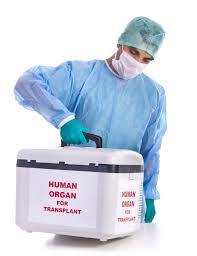transplant
英 [trænˈsplɑːnt]
美 [trænˈsplænt]
- vt. 移植;迁移;使移居
- n. 移植;移植器官;被移植物;移居者
- vi. 移植;迁移;移居
使用频率:

中文词源
transplant 移植,移种
trans-,转移,转变,plant,移植,栽种。
英语词源
- transplant (v.)
- mid-15c., from Late Latin transplantare "plant again in a different place," from Latin trans- "across" (see trans-) + plantare "to plant" (see plant (v.)). Extended to people (1550s) and then to organs or tissue (1786). Related: Transplanted; transplanting.
- transplant (n.)
- 1756, in reference to plants, from transplant (v.); in reference to surgical transplanting of human organs or tissue it is first recorded 1951, but not in widespread use until Christiaan Barnard performed the world's first successful heart transplant in 1967 at Groote Schuur Hospital, Cape Town, South Africa. Meaning "person not native to his place of residence" is recorded from 1961.
权威例句
- 1. The arteries are diseased and a transplant is the only hope.
- 动脉已经发生病变,移植是唯一的希望。
- 2. Only 12 weeks ago he underwent major heart transplant surgery.
- 12个星期前他才刚刚接受了风险很高的心脏移植手术。
- 3. I was on dialysis for seven years before my first transplant.
- 在进行首次肾移植之前,我做了7年的透析。
- 4. There are 2,000 children worldwide who need a bone marrow transplant.
- 全世界有2,000名儿童需要骨髓移植。
- 5. Harefield Hospital has become world-famous for its pioneering heart transplant surgery.
- 哈瑞福德医院以其开创性的心脏移植手术闻名于世。
